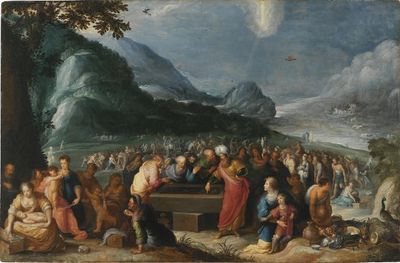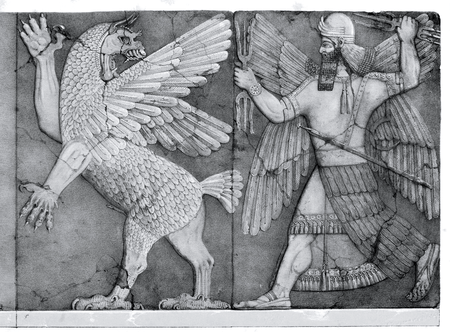The Sabbath Rest
- Details
- Category: The Sabbath Equality

- The American Time Use Survey released on July 22, 2021 by the Bureau of Labor Statistics (BLS) states that nearly one in every three single job holders and 58% of multiple job holders work on the weekends.
- A 2020 survey of 2,800 workers by California-based staffing firm Robert Half reveals that nearly 70 percent of professionals who turned into remote workers due to the Covid-19 pandemic say they now work on the weekends.
- A survey of 1000 Americans done by Enterprise Rent-A-Car (Apr 26, 2017) found the below:
- 63% of the workers declared that their employer expected them to put in time on weekends.
- Women had their weekends much worse off than the men. Only 20% of the women responded that weekends were available for their passions and hobbies when compared to the 45% of the men who had satisfaction in that area.
- A study of British workers that came out in the Journal of Epidemiology & Community Health found that working weekends had a tangible impact on mental health. More worker stress, an “always on” feeling, insufficient rest, recovery, or leisure, lack of autonomy or self-determination, fewer social plans and less time with loved ones were among the listed ramifications of a weekend-less life (Weston G, Zilanawala A, Webb E, etal Long work hours, weekend working and depressive symptoms in men and women: findings from a UK population-based study. J Epidemiol Community Health 2019;73:465-474).
All these statistics indicate a stressful and restless work environment for a majority of the human population. But this is not a relatively new situation. Throughout the pages of history, in almost all the societal systems and Empires of Men, we notice that it is only the rulers and the rich at the top that enjoy any concept of rest while the masses are expected to labor away their lives non-stop as if they were mere machines.
When Yahweh liberates the Israelites from the Egyptian Empire thus forming an alternative society in the wilderness outside the imperial norms, and then delivers his famous Ten Commandments to Moses at Mount Sinai, the fourth commandment reads as follows -
Remember the sabbath day, and keep it holy. Six days you shall labor and do all your work. But the seventh day is a sabbath to the LORD your God; you shall not do any work—you, your son or your daughter, your male or female slave, your livestock, or the alien resident in your towns.
Exodus 20:8-10
This law grants a day of rest every week for –
- you
- your son / daughter
- your male / female slave
- your livestock
- the alien resident in your towns
And the author provides two main reasons for it.
1. Sabbath and Creation
Why do we need Sabbath? First of all, it’s ingrained in the very creation of our universe itself -
For in six days the LORD made heaven and earth, the sea, and all that is in them, but rested the seventh day; therefore, the LORD blessed the sabbath day and consecrated it.
Exodus 20:11
Yahweh shows that rest is part of the natural order of things, right from the start in his creation methodology. Rest is universal. You are supposed to relax and take a day off. Because that is how the God of the Universe rolls.
As we know from our human experience, only a mind that feels secure and at peace can actually rest. And that’s what Yahweh’s rest illustrates at the end of creation. He is supreme, at peace and secure in his throne, ruling over his creation. The Sabbath celebrates that and every one of his creation should partake in it, especially the humans whom he made in his own image and bestowed upon the rulership of the Earth and all that is in it.
Then God said, “Let us make humankind in our image, according to our likeness; and let them have dominion over the fish of the sea, and over the birds of the air, and over the cattle, and over all the wild animals of the earth, and over every creeping thing that creeps upon the earth.”
Genesis 1:26
As Yahweh’s deputed rulers of Earth, humans are to ensure that the Sabbath that rest is given not only to their own selves, but to all of our fellow creations as well.
2. Sabbath and Liberation
The second reason for Sabbath is another creation narrative i.e., the creation of the nation of Israel. It is also a liberation story –
Remember that you were a slave in the land of Egypt, and the LORD your God brought you out from there with a mighty hand and an outstretched arm; therefore, the LORD your God commanded you to keep the sabbath day.
Deuteronomy 5:15
The origin of sabbath is intimately tied to Yahweh’s liberation of Israel from their imperial overlords. The freedom to take rest stands in direct opposition to the slavery under the Empire.
Sabbath - The Great Equalizer
Whenever the Sabbath law is discussed nowadays, debates usually rage on which day it's supposed to be and the mechanics of how one is expected to observe it. But all these controversies distract us from the main point of the law, which is unprecedented in the ancient world. So what is it that makes it groundbreaking and revolutionary?
Well, the law applies equally to everyone in society, with no bias for –
- Gender –
“your son or your daughter, your male or female slave”
- Class –
“your male or female slave”
- Ethnicity –
“the alien resident in your towns”
- Species -
“your livestock”
Apart from explicitly mentioning protection for daughters, female servants and migrant workers who are usually among the most vulnerable in any society, it goes beyond humanity to cover even animals.
The focus of the commandment is re-emphasized time and again as rest not only for a person’s own self but more importantly for his farm animals, servants and resident aliens. It’s important that you yourself take rest so that the animals and the people who work for you also do. It’s a weekly day of social solidarity that refreshes everyone in the land.
Six days you shall do your work, but on the seventh day you shall rest, so that your ox and your donkey may have relief, and your homeborn slave and the resident alien may be refreshed.
Exodus 23:12
Sabbath breaks all known barriers of Empire-dominated societies and brings all of creation to an equal standing before their Creator as he commands them to take a day off and rest as he did when he had created them.
Those who violate Sabbath are subject to capital punishment and there is also a fire ban throughout the day.
Six days shall work be done, but on the seventh day you shall have a holy sabbath of solemn rest to the Lord; whoever does any work on it shall be put to death. You shall kindle no fire in all your dwellings on the sabbath day.
Exodus 35:2-3
Now, to the modern mindset, the prohibition on fire may seem odd and the death penalty unnecessarily harsh, especially as we see it actually enacted.
When the Israelites were in the wilderness, they found a man gathering sticks on the sabbath day. Those who found him gathering sticks brought him to Moses, Aaron, and to the whole congregation. They put him in custody, because it was not clear what should be done to him. Then the LORD said to Moses, “The man shall be put to death"
Numbers 15:32-35
But the fire ban is to prevent the male members of society from demanding their mothers or wives or daughters fire up the grill and cook for them i.e. do work, while the men themselves enjoy the Sabbath rest. This radical Sabbath is rest justified for all and that includes the household women! The man found gathering firewood violates that justice, as he is doing work that will in turn unjustly expect work from the women in his home.
Thus, the Sabbath commandment excludes no one from its scope, and demands every human to treat others with equal respect. It is the great equalizer that stands out amidst an ancient world that was staunchly unequal in almost all aspects of life.
Sabbath – A sign of the one and only Yahweh
Sabbath is an unmistakably unique sign in the ancient world. It makes Yahweh stand out from the others in the ancient pantheon of gods. Here is a different kind of god who demands the humans rest for his sake, whereas in most mythologies, the gods are always about having the humans do work for them. To cite a couple of examples:
ancient pantheon of gods. Here is a different kind of god who demands the humans rest for his sake, whereas in most mythologies, the gods are always about having the humans do work for them. To cite a couple of examples:
- In some ancient Eastern creation mythologies, humans are made out of body parts of a god with the implication that the lower the part the dirtier the type of work they are supposed to do.
- The gods of the Babylonian Empire, according to the Enuma Elish mythology, create humans from a slain god’s blood, essentially as slaves, and then order them to labor for the gods.
Yahweh, on the other hand, creates humans in his own image and seats them on high as rulers of Earth, a far cry from lounging at the bottom as workers and slaves.
Then God said, “Let us make humankind in our image, according to our likeness; and let them have dominion over the fish of the sea, and over the birds of the air, and over the cattle, and over all the wild animals of the earth, and over every creeping thing that creeps upon the earth.”
Genesis 1:26.
Then, when the Israelites are enslaved by the Egyptian Empire, Yahweh liberates them, re-creates them into a new society and demands them to rest once a week as part of worshipping him. He defines his covenant relationship with them by “rest”, while the other ancient gods formulate their dealings with humans by “work”.
This is why the Sabbath becomes a unique aspect of Yahweh’s relationship with his people. And any violation of it ends that exclusive bond. It is a serious offense and a capital crime.
Read Next: The Sabbath Year Release